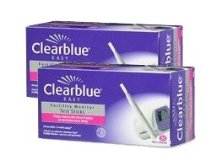 By GettingPregnantNow.org
By GettingPregnantNow.orgAre you trying to get pregnant?
If so, you may want to cut down the amount of time you spend at the gym .
That’s the conclusion of a new Norwegian study which found that women who workout too hard or too long may be putting a crimp in their fertility – and making it harder to get pregnant.
The research, conducted on some 3,000 women by the Norwegian University of Science and Technology (NTNU), found that the exercise-fertility link existed even in otherwise healthy women.
The women most likely to be affected: “ Those who trained almost every day. And there were those who trained until they were completely exhausted. Those who did both had the highest risk of infertility,” says researcher Sigridur Lara Gundmundsdottir.
The big surprise: The age of the women affected! Uncharacteristically, it was younger women - those under 30 - that seemed to experience the most exercise-related fertility problems, with risks as high as 3.5 times that of women who did not work out.
Moreover, the links persisted even after contributing factors were considered – including body mass index, smoking, marital status or previous pregnancies.
"When we compared those who trained to exhaustion to those who trained more moderately, we found that the first group had a three-fold greater risk of impaired fertility," says Gudmundsdottir.
Why Exericise Harmed Their Fertility
Although doctors aren’t certain exactly why working out too hard and long impacts fertility, many believe it all has to do with energy. Simply put, when the body is over-taxed , your brain switches to a kind of “energy preserving” mode, selectively shutting down whatever activities are perceived as “immediately unnecessary.”
For women, this can include the hormone functions that orchestrate fertility.
And, in fact, this is exactly what we see often see in female athletes and even dancers, many of whom stop menstruating during periods of hard and long training. When menstruation stops, it’s a signal that ovulation is not occurring – which means that the brain chemistry necessary for reproduction has slowed down or even stopped completely.
Restoring Your Fertility – And Getting Pregnant Fast!
While it’s clear that working out too hard can rob your fertility, the good news is that cutting back can restore it!
"The vast majority of the women in the study had children in the end,” says Gudmundsdottir. And often, all it took was working out a little less! .
Now if you’re thinking that the best way to insure your fertility is to drop that gym membership altogether, well not so fast. Indeed, other studies have shown that getting no exercise at all can be as bad for fertility as exercising too much. Gudmundsdottir also believes moderation is the key.
'We believe it is likely that physical activity at a very high or very low level has a negative effect on fertility, while moderate activity is beneficial," she says.
Getting Pregnant: Every Woman Is Different
While it’s clear that working out to the point of exhaustion is one way to know you have really over done it, in reality, what is considered “too much “ exercise for one woman, can be just an “average amount” for others. So, how do you know what’s too much for you?
Studies show that for most women working out 30 minutes a day, 3 to 5 days a week is a healthy parameter , both for your overall health and your fertility.
That said, if you find that your menstrual cycles are becoming irregular, that ovulation seems to have gone off course, and particularly if your period has stopped completely, then it’s possible you may still be working too hard, for you. If so, cut back and do less at each session – and stop activity before – not after – you feel that sense of “exhaustion”.
If after cutting back for 6 weeks your fertility symptoms persist, talk to your doctor about other possible causes.
For more helpful tips on how to encourage fertility naturally – and discover delicious foods that can help regulate hormones and help get your ovulation back on track, FertilityDietGuide.com.
Copyright by Colette Bouchez 2009 - All Rights Reserved.In addition to US Copyright, the text of this FERTILITY BLOG is licensed under a Creative Commons Attribution 3.0 License. All Formatting and style elements of this page are not available under this license and Colette Bouchez retains all rights in those elements.
 Research suggests that for many women, Vitamin D - the sunshine vitamin - may be the answer to getting pregnant faster and easier! Here's an expert opinion on the topic.
Research suggests that for many women, Vitamin D - the sunshine vitamin - may be the answer to getting pregnant faster and easier! Here's an expert opinion on the topic. 


















